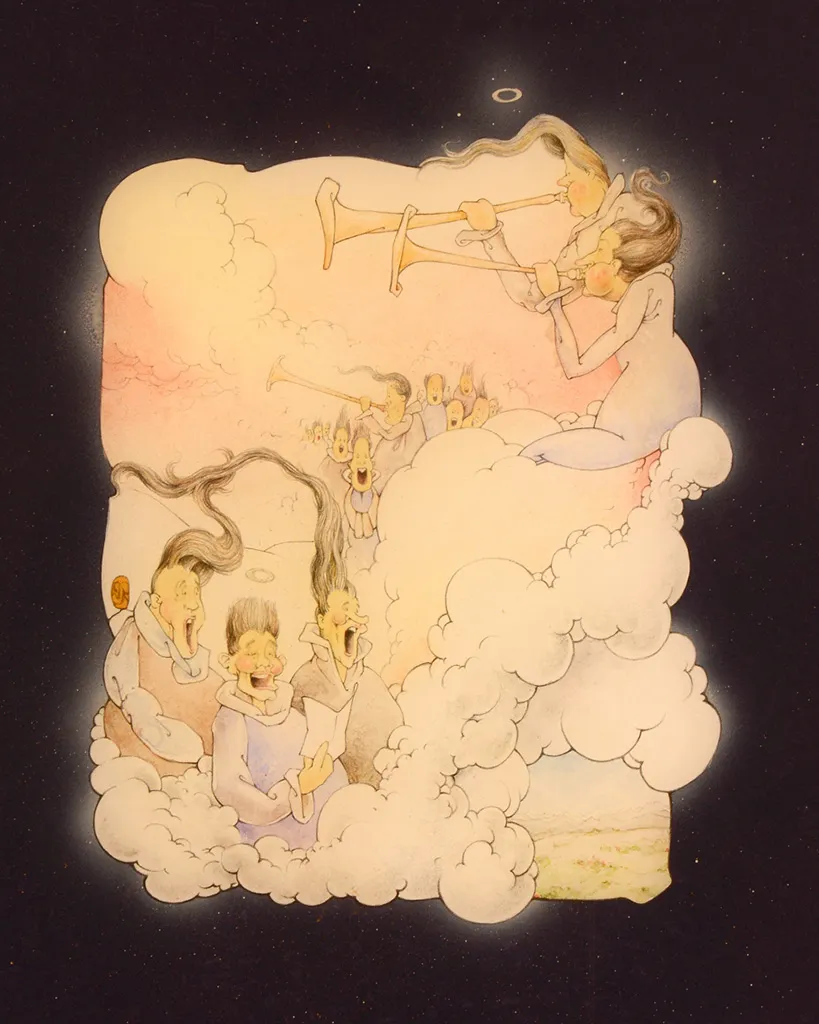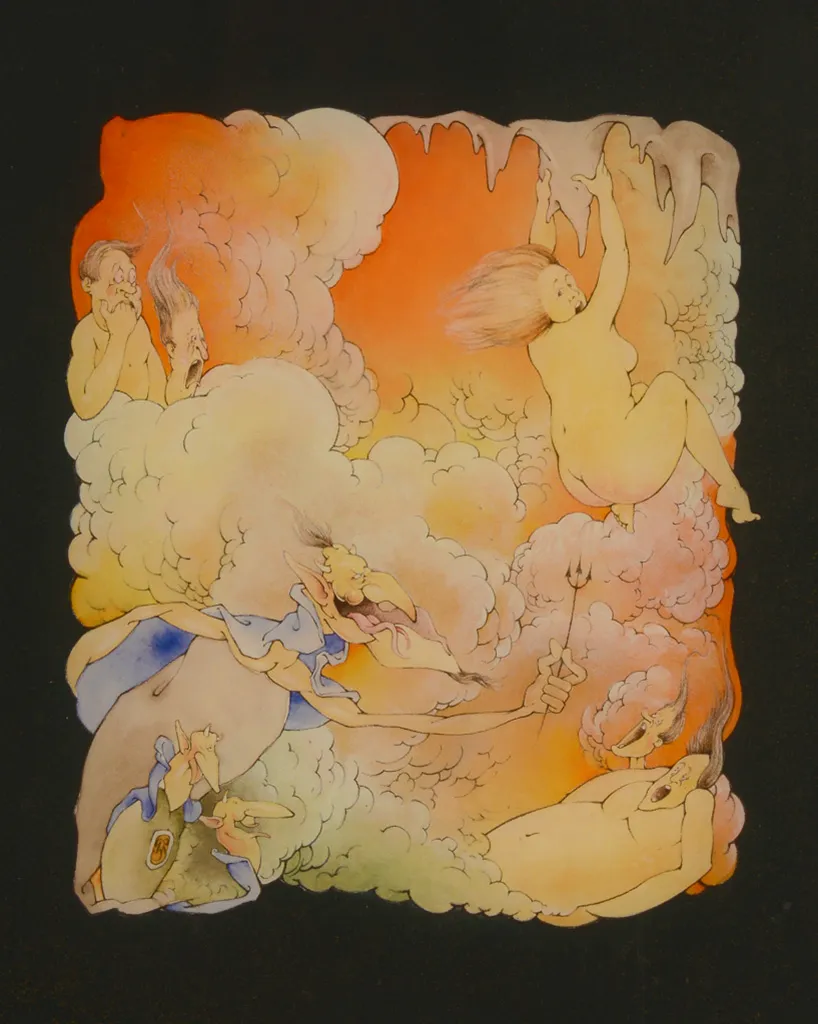In addition to my consulting work in the systemic area, I do a large part of social work. This brings me into contact with people in need.
I have thought a lot about which faces "welfare" has.
On the one hand, it is absolutely necessary and is a grown model in a society that contains so many different ways of life. If I look at it from above, I would think that everyone in Germany lives under optimal conditions. The existential is always taken care of and no one needs to starve or miss a roof over their head. This can be described as a fact. My country takes care of everyone.
 !
!
In fact, however, welfare has another phenomenal effect: that of interdependence. The needy depend on those who help them.
But little is said about it being reversed: the helpers depend on the needy, as well.
In short, where there is no illness, there is no need for a doctor. If the doctor would be superfluous because no one is ill, he would have to look for another job or only become a doctor when someone happens to be ill. For me, such a life model makes more sense than insisting on my work as a doctor and making me so deeply dependent on my many patients. Spending eight hours or more every day on my specialized activity is a danger: I lose sight of the diversity of life. I may get the impression that there are mainly sick people in the world.
This is basically a rather exaggerated description of how I would describe our welfare state. An inflated and oversized effort to divide people into those who can and those who need. Employers give work, employees take work. Social assistance helps the socially deprived, homeowners help the homeless. Food suppliers help the food consumers.
Where in these divided atmospheres are the interfaces?
Above all, where does an understanding of the fact that we are all donors and recipients at the same time happen? Where are the similarities?
When I look at a normal day, I take my role several times a day. But not as colorful as I might think. From the morning coffee consumer I move on the supply level in a lot of consumer roles. I eat food, consume water and electricity, use various devices until I leave the house to arrive at my job, using a means of transport: public or private, car, bicycle or train.
I have already consumed a lot of material that was previously provided to me by the donors of society and that has already been paid for at some point by someone. My hitherto main occupation and most active part of my life are based on my consumer role. So when do I even leave this role? When I arrive at my job? What am I doing there? In my case, I use an infrastructure, organizational structure, building, technology, energy and furnishings provided to me. The desk I use is part of my working tool. For the most part, I still have a consuming quality. Anything, this immense abundance of energy input that has already taken place, I get as a gift.
I can't help but be amazed at the self-confidence with which I do all this every day. Since I sometimes fall prey to the deception of leading an "independent life".
Independence? Nothing could be more wrong.
What about my gratitude for this incredible material wealth? As far as I am interested in my personal maturity, in understanding the interrelationships of my existence, I could exaggeratedly speaking, sink into awe.
But do I feel that too?
Whenever I should enjoy my coffee, I think about how much effort and human and technical energy was put into making it possible for me to drink a delicious coffee this morning?
Honestly, you are already thinking about what's on the agenda today and which tasks - lovely and unpleasant ones - are on your schedule. As a rule, you do not see yourself as the beneficiary of a gigantic added value.
The fish swimming in the water does not know that the element surrounding it is exactly what keeps it alive, nourishes it and takes it further through the current.
Is this what current means?
We can't seem to think about being a fish in the water every second. We have to take care of our fishy lives.
Back to the subdivision:
I have a needy man sitting in front of me.
He is not aware of his role as a giver. Those who give him something all the time stress that he only takes but gives little back. But. There is no distinction at all between me and my social welfare recipients. These are consumers as much as I am a consumer. They spend their entire income support to live, eat and take care of what they consider necessary - and so do I. May I judge what I will, it is not my cup of tea to do this. Everything that they consume in matter benefits the general public again because by consuming rich and poor alike, new products and services are fed into the consumer cycle. Same with me.
With that knowledge: Does that change the way I look at this needy man?
Of course, of course! For a long time now, he is no longer the poor devil who just swallows and spits nothing out. He carries society in his hands just as I carry it in mine. But where does his despair come from, why doesn't he get his life together? Where does my come from? Maybe because he believes what he's being suggested: That he's a charity sponger and that everything he acts upon isn't really worth anything. Same here.
You can understand that now, can't you? What about those who are considered "rich" spongers? It's exactly the same: Those who can't realize that they are already giving as much as they take, either get into the fantasy of wanting to make mankind happy with giganto-maniac projects or show it the stinky finger and make everything ridiculous or build a nest in their cynicism. And we, who stand in the middle? Neither particularly poor nor particularly rich? You'd think we're the mental winners of this contemplation, wouldn't you?
That's what we could at least be if we looked at it as such.
That is why, and because none of us does too little or too much for other people, we all need money because we are consumers. In this role, I and those who live with me in this country move mostly in the role of beneficiaries (consumers).
The suffering, which nevertheless clearly emerges, is also there:
it is basically an illusion.
The illusion that, despite this immense wealth of supply, there is still something like depression. So is it not the material? No, how stupid that I didn't think of it before? Maybe not so stupid, though. If I had started with the depression, some conclusions would have been lost.
 !
!
Part of the depression comes from the illusion of being able to lead an independent life as a consumer. This imaginary independence leads me to see myself only as a consumer. I run the risk of seeing others only in this state and feeling separated from the others. I rely on the welfare money, social work, the social housing and am still completely alone. Or I rely on my wealth, which, in the end, is just the same. Because I have forgotten that everything social is not worth much if I don't look for the connection between myself and the others. Making me friends by being friendly to myself and the others. Friendly does not mean that I do not even speak a clear and unpleasant word.
Friends should sometimes do things that are difficult.
Such as giving help by friendly rejecting it.
How so? Those who, as a needy person, refer exclusively to the fact that they have no choice in this feeling of having to take, transfigure their view of what they have already given all along. How can anyone be thankful if they don't even know that their existence is already helping others to maintain their work, feel useful in it, even to be well paid for charity and culture and entertainment?
Isn't it a big difference to consider yourself equally productive and beneficial? Because that's just the order of things. Everything, not just people, are users and consumers. All in nature is.
Many people make a big mistake when they believe that they are a burden to others when they ask for help. In fact, however, they always become a burden when they themselves are the most convinced to do so. After all, how do I react to someone who conveys the message internally that he is not worth it? And it gets even worse when the person who is being asked for help thinks of himself in exactly the same way that he too is a burden.
Then we have two negatives.
Unfortunately, these do not add up to a positive result but to an even bigger negative.
To send a person away and to suggest that he can help himself alone is only friendly if it was friendly meant in my heart. If I send a person in need of help (or someone who thinks he is) away out of anger, contempt or despair, then this was wasted energy. Because I have done nothing more than want to send my own angry, despising and desperate part to the devil. It would be the same as if I was alone in a room and told myself: "Now, you get the ... out of here! I can't stand you any longer!"
Unfortunately (or fortunately, depends), I cannot send myself away now, because I am always in my own company.
It is precisely for this reason that such an undertaking is pointless. By at least admitting that I am too angry and disgruntled to be able to help someone else at the moment, I may be able to build a little bridge to the one who has sought his happiness in vain with me today. This bridge is even more important for myself, see: the other one goes away, but I remain in my own company.
But. Now I also can expect and accept only the best from other people. For example, I might wish that a man who is harshly rejected by me conquers wisdom to realize that he is not the only one who loses his nerves and expresses human feelings.
It may even be that only my uncontrollability and anger triggers a moment of awakening with him. Who can say that with any certainty?
But this is not very likely. It would still be wise of me to accept the probability of "stupidity" and be inclined to train myself in favor of one's own ability to do more good than harm.
So people are not unhappy because they do not get enough,
they are unhappy because they believe they do not give enough.
If we could understand that we have long since been bedded in feathers, the desperate self-serving observer, desperately in need of it, could refrain from continuing to indulge in this illusion. People seem to be beings who are terribly interested in giving something actively. They do not acknowledge their passive actions, they are blind to the fact that their existence already gives many gifts. Of course, it also makes trouble, one is not getting without the other. The art is now to distinguish between gift and trouble.
There's nothing fundamental, stable. Nothing at all.
What is a source of joy for you today can cause you headaches tomorrow. Whoever laughs with you now can let you go through the ceiling two hours later. Where is there immutability? Nowhere. You live your life in a constantly changing stream of events and impressions.
Concentrating on wanting to have confirmation at all corners and ends is just a cheap wish. As cheap as it is. It'll come back to you. It's used up within seconds. It is far better to confirm. In the form of heartfelt gratitude to you and to those who have annoyed you the most.
If your life was always sunny?
What then? You wouldn't know how to see the sun. Soon it would be just a stupid yellow ball that you turn your back on and you would make sure to get into the shadows. Not until you've been in the dark enough will you greet the sun with joy again. There is no beginning and no end. This has been going on all your life. And will continue in this way.
Good & bad day for you ;-)
 !
!